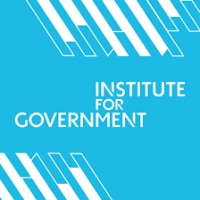The Institue for Government Research Points To Emergency Spending Not Long Term Solutions
Sunday 20 May, 2018 Written by Institute of Government
According to the Institute for Government, the Government is spending over £10bn in five years just to keep troubled services – such as hospitals and prisons – going.
Yet this extra money is not sorting out any of the underlying problems these services face.
Government needs to change the way it makes spending decisions say the, Institute for Government.
No government should be faced with an imperative to act unless it has been beset by a natural disaster or similarly unpredictable event. Yet this is the position the Government has faced repeatedly since 2016 and currently faces in prisons and hospitals.
Our current process for making spending decisions incentivises a reactive, short-term approach. Spending decisions are made with the spending review (and electoral) cycle in mind, with the focus on how to survive now, rather than on what services will need to look like in five years’ time if they are going to successfully fit within their budgets
The Treasury operates a highly effective system for spending control, but it has no standard framework for assessing what has been achieved with the spending, or for consistently reacting to pressures as they emerge. The National Audit Office (NAO) and Public Accounts Committee (PAC) have both highlighted the lack of a consistent framework for planning and assessing performance within government. Nor is there an independent body that does this, in the way that the Office for Budget Responsibility scrutinises the assumptions behind the Government’s tax and benefit spending forecasts.
Therefore, the Institute for Government recommend:
- The Chancellor should instruct the Treasury, working with departmental finance and analytic professionals, to develop its own Performance Tracker, as a planning and performance management tool. The Tracker should clearly set out assumptions about demand, inflation, efficiency and quality at least three to five years ahead and be regularly updated.
- The efficiency assumptions should be supported by clear and realistic delivery plans including timescales and national and local responsibilities.
- The Treasury should publish this Tracker or, at a minimum, make the key assumptions public and available for scrutiny by Parliament.
- The Government should subject these assumptions to independent review to assess their viability, potentially through an ‘OBR for public spending’.
This is about more than just identifying warning signs of potential service failure sat the Institute for Government. It is about driving performance improvements in the public sector. The Chancellor and the public need to know the real consequences of spending decisions and understand where further efficiencies may or may not be realistic, so that public money can be used as effectively as possible.
ABC Note: Shortened version on a report courtesy of the Institute of Government

Image: Institute of Government, 2 Carlton Gardens, St. James's, London SW1Y 5AA
Leave a comment
Make sure you enter all the required information, indicated by an asterisk (*). HTML code is not allowed.
Join
FREE
Here










